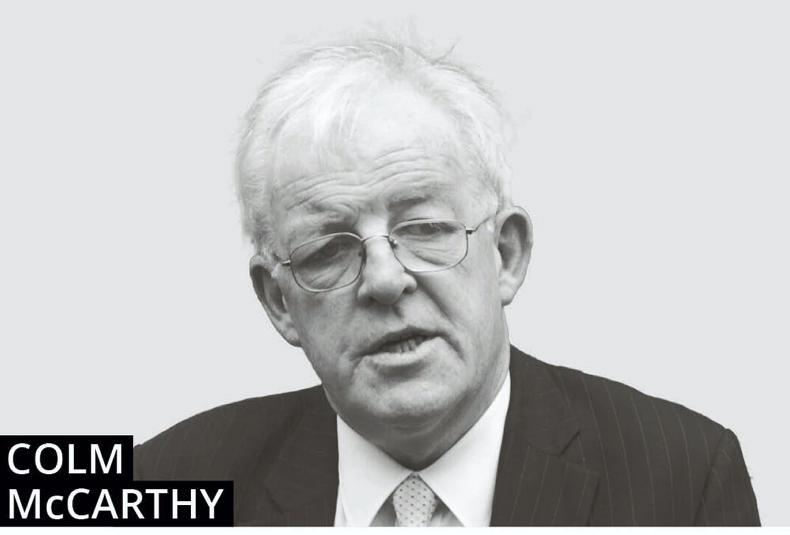Booming corporation tax revenues these last few years will prove temporary in all likelihood.
Future spending commitments, current and capital, are not adequately provided for, according to the Irish Fiscal Advisory Council. The comfortable budget position could reverse, and prudent management of the public finances needs credible fiscal plans, not just declarations of concern about public money, from Government and opposition.
Two Oireachtas committees, those responsible for Public Accounts and Media, assisted by the mainstream print and broadcast outlets, have devoted excessive attention to the goings-on at RTÉ since they emerged last July.
The attention has bordered on obsession and has lasted a full six months with brief holiday intermissions. It has been established that several millions have been mis-allocated and continuing revelations are accompanied by constant assertions that ‘this is public money’.
While politicians and media parade their concern that every penny be accounted for, they have lost sight of the tiny scale of the sums involved.
Star presenters
Between over-payments to star presenters, generous termination deals for departing staff and assorted freebies at football matches in Tokyo and Madrid, it looks as if no more than about €5m has gone astray over a period of years.
Meanwhile far greater financial scandals, running into the billions, have emerged elsewhere without benefit of comparable political or media attention.
Citing the €450,000 exit payment to a departing RTÉ executive, the Sunday Business Post lamented that ‘If ever there was a week to feel aggrieved as a taxpayer, it was surely the past seven days’. Overshoots on the capital programme, unprovided for in budget projections, also fall to the taxpayer when the bills come due, and they are on a staggering scale.
Annual budget
RTÉ’s annual budget is around €350m, so the station’s finances have not been greatly affected by whatever loose financial management was tolerated.
It is unfortunate if large public organisations have weaknesses in financial control, but there needs to be a sense of proportion.
Last week it emerged that the National Children’s Hospital (NCH) is set to cost the enormous sum of €2.24bn, versus the figure of €800m on which the go-ahead from Government was granted in 2016. Prior to this latest estimate the admitted figure had been €2bn, far too round a number to inspire confidence.
There is now an admission that the figure was again too low.
The excess on the initial sanction of €800m will be €1,424m and the overshoot is 285 times the €5m which seems to have been mis-directed at RTÉ.
This is easily the largest overshoot in the 100-year history of the State capital programme but sails by with barely a mention. If the €5m at RTÉ is worth six months of continuous scrutiny from politicians and journalists, it will take them, on a pro rata basis, over a century to catch up with what has happened at the NCH.
If carelessness about public money is truly the big issue, why did this overshoot happen, and what others are brewing elsewhere in the capital programme?
The €5m gone astray at RTÉ is not the real issue fuelling the incessant coverage. The media is prone to self-obsession and navel-gazing, covers media-related stories with gusto and every journalist is interested in the earnings of others in the same business.
Politicians on Oireachtas committees are keen for exposure and apt to focus on whatever the media, especially RTÉ itself, puts highest on the agenda.
The current over-the-top level of interest is exacerbated by the financial woes of the broader media industry which have seen layoffs and cutbacks for years past.
RTÉ is a critical part of the media landscape, so the quality of its coverage of public affairs matters more than most
Almost all media companies, print and broadcast, have been feeling the squeeze through the migration of advertising to the digital platforms.
Most print titles have seen declining circulations for two decades and traditional TV stations have been losing viewers, and hence their attractions to advertisers, to subscription sports and movie channels.
But RTÉ is a critical part of the media landscape, so the quality of its coverage of public affairs matters more than most.
It is the dominant radio and TV source for most people, reflecting its access to both advertising revenue and the bulk of the proceeds from the TV licence fee.
It has the most resources because of this dual funding and hence the greatest ability to retain audiences.
The disproportionate focus on the modest amounts of money misdirected at RTÉ has crowded out proper consideration of the catastrophe for the public finances at the NCH.
This week saw the commencement of hearings at An Bord Pleanála into the proposed MetroLink, a project most recently costed by the project promoters at €11.9bn, more than five times the latest figure for the NCH and already a colossal overshoot on the initial estimate of €3bn. It is not too late to avoid another debacle.






 This is a subscriber-only article
This is a subscriber-only article










SHARING OPTIONS: